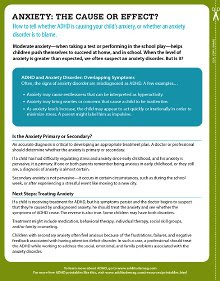
Quintessential Careers: A Guide for Teens: How to Find a Summer or Part-Time Job
by Randall S. Hansen, Ph.D.
Even if summer vacation is still a few months away for most teens, now is the time to plan and lay a foundation for landing that cool summer job you really want.
The Action Plan for Teens Wanting a Summer Job The first step you need to do is decide on the summer job you want or need -– in terms of the type of job, the location, the hours, the pay. You may not be able to find a job that meets all your needs, but given the current employment situation you should strive to find one that meets as many as possible.
The second step you need to do is complete a self-analysis. What do you have to offer an employer? What kind of skills do you have? What kind of other work have you done -– paid or volunteer? What have you learned at school that might be useful in your ideal summer job?
The fourth step you need to do is use all your available resources to land that ideal summer job. Talk with your parents and older family members, your friends' parents, your teachers, and any other adults you know and ask them if they have any contacts at your ideal job's company. Give them copies of your resume. We call this step networking, and it will give you the highest chances of landing your ideal job.
The fifth step is hitting the pavement, reading the newspaper want ads, and/or surfing the Web. If you don't get any job leads from the fourth step, you have to take action!
The sixth step is applying for the jobs that interest you. This step is where you again use your resume. Make sure you are familiar with job applications and have all the information you need to complete them.
The seventh step is interviewing for the jobs. Make sure you know something about the company; develop answers to common interview questions; think of a few questions you could ask; practice, practice, practice with a family member of friend; dress conservatively for the interview.
Where Teens can Find Summer Jobs There are any number of places where you can look for a good summer job:
Local merchants: local stores often need good help – and not just in the summer.
Small businesses: most towns have a number of small business offices – and your family or friends probably know several owners or office managers.
Corporate offices: many have established summer jobs and internship programs, but often these are the most competitive.
Stores at the mall: have a favorite store you like to shop at in the mall? Maybe now is the time to get a job there –- just be careful not to spend all your earnings buying their products.
Hotels and resorts: summer is the busy season for most hotels and resorts.
Tourist attractions: even if you don't live in Florida or California, most states have tourist attractions that especially need help during the busy tourism season.
Golf & Tennis clubs: as the weather improves, these clubs are usually looking for part-time help.
Grocery stores: maybe not the most exciting jobs, but probably the most convenient -– and not just for summer.
Fast food and restaurants: local restaurants always need good help -– and while not the most glamorous, it's still a job.
Parks and recreation departments: city, state, and national parks and recreation departments often develop special summer programs, and thus have job opportunities.
Local government summer job programs: often various government agencies sponsor different kinds of summer youth work programs.
Summer camps: okay, you went to camp as a kid – now you can go back as a counselor and get paid while being at camp.
What do Employers Look for in Teens Employers want motivated teens who are going to arrive to work on time, have a positive attitude, work hard, work well with others, show leadership qualities, work their full shift, and do the best job they can. You need to show your employer that you are a good investment, both for the current position, as well as for any potential future positions.
Final Words of Advice Jobs are jobs. You are going to have to work, no matter how "cool" the job or company, so be prepared for some days to not be as great as others. The keys to remember are that you are earning money, you are gaining experience, and you are making good contacts (and references)!
Questions about some of the terminology used in this article? Get more information (definitions and links) on key college, career, and job-search terms by going to our
Job-Seeker's Glossary of Job-Hunting Terms.
Reprinted with permission; copyright Quintessential Careers











